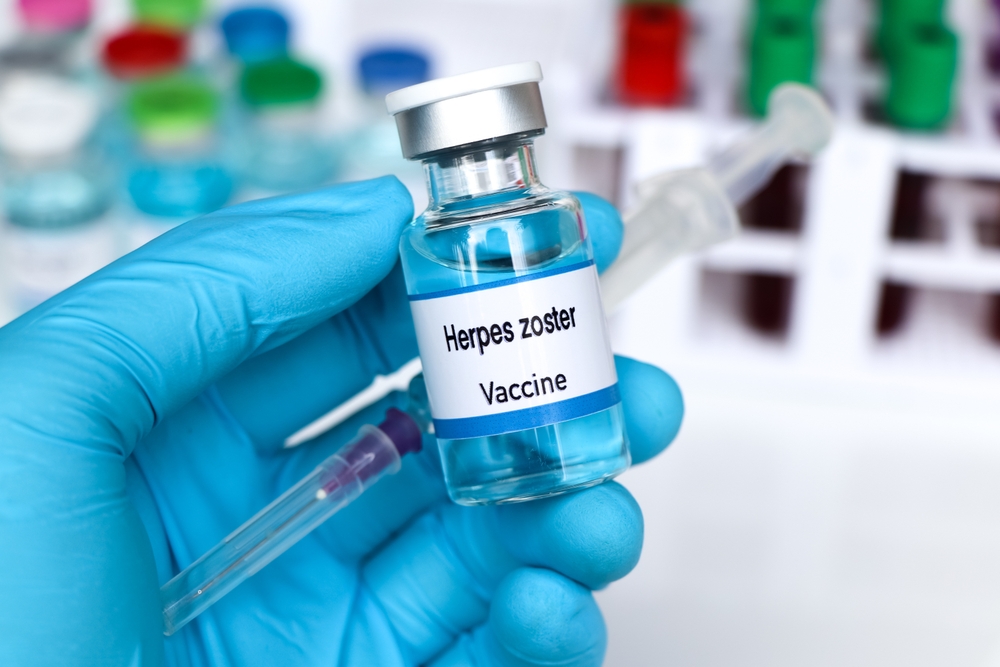Monday, March 4, 2024, 11:09 a.m
“Personalized vaccinations” are intended to protect certain groups of people from serious illnesses. For this purpose, pharmaceutical companies are developing special vaccines, modified vaccine doses and specific vaccination routes in vaccination research. An example is the vaccine against shingles (herpes zoster). This was specifically developed to protect older people. Good news!
Every patient is different: one differs from the other, for example, in terms of gender, age, weight or health status – to name just a few physical characteristics. “That’s why patients react very differently to certain vaccinations,” says Dr. Nicole Armbrüster, vaccine expert at the Federal Association of the Pharmaceutical Industry (BPI). The immune response is weaker in older and immunocompromised people than in younger people. The technical term for this is called immunosenescence. Being overweight can also result in a lower immune response. After a vaccination, women produce more antibodies than men. So why should all patients be vaccinated according to the same schedule? In order to take greater account of the specific characteristics of patient groups when vaccinating, solutions lie in “personalized vaccination”.
Protect older people better
“Personalized vaccination does not mean that every person receives their individually tailored vaccine,” explains Armbrüster, “but rather that vaccines are tailored to specific groups of people.” The type of vaccine can also have a decisive impact on a person’s immune response. Which vaccine is used is particularly relevant in old age. Because of immunosenescence, older people are particularly at risk for infectious diseases. Infectious diseases usually occur more frequently in old age and are more serious. “For such patient groups, pharmaceutical research uses the concept of so-called personalized and predictive vaccinology (the science of vaccines), for example,” explains the BPI expert. Predictive means defining population groups that can be better protected against a disease through personalized vaccination.
Shingles: Vaccines specifically developed for people with weak immune systems
An example of a vaccine specifically developed for older people is the inactivated vaccine against herpes zoster, commonly known as shingles. Like chickenpox, the infectious disease is caused by the varicella-zoster virus. If you have had chickenpox when you were younger, these viruses nest in the nerve cells in the body. Around 99.5 percent of people over 50 carry the virus in their nervous system. If the immune system weakens – for example in older people – these viruses can become active again and cause a painful rash called shingles. The stabbing and burning nerve pain may last for a long time after the rash subsides. The inactivated vaccine against herpes zoster contains a special molecule, a so-called surface antigen, which normally “sits” on the virus and stimulates the immune system to produce antibodies. Antibodies are proteins that bind to the surface antigen and thus disable the viruses. To strengthen the immune response, the vaccine also contains a special adjuvant. “In this way, the immune response, which weakens with increasing age, can be boosted,” emphasizes Armbrüster.
Ten years protection
The Standing Vaccination Commission (STIKO) recommends vaccination against shingles for all people over 60 years of age. People with an underlying disease such as diabetes mellitus, a chronic disease of the lungs, kidneys, intestines and a congenital or drug-induced immune deficiency are advised to get vaccinated against shingles from the age of 50. The vaccination consists of two vaccination doses, which, according to STIKO, should be administered at least two to a maximum of six weeks apart. The vaccination protects for at least ten years. “If a patient is already acutely ill with shingles, antiviral drugs – so-called antivirals – are often used for medical treatment. Their active ingredients inhibit the reproduction of viruses,” explains Armbrüster.
Personalized vaccination strategy for a changing society
An aging population and more and more people with chronic illnesses, overweight and obesity require a personalized vaccination strategy that better protects them against diseases. “With the help of new technologies, modern vaccination research is developing new vaccine antigens, improved active ingredient amplifiers, modified vaccination doses and other vaccination routes – for example mobile vaccination teams or vaccinations at home,” adds Armbrüster. “Overall, this should lead to increasing the effectiveness of a vaccination and specifically protecting people with a weaker immune system from the outbreak of certain diseases.”
Note: The use of the photo is free of charge provided the source is Shutterstock_chemical industry and in connection with the press release.
